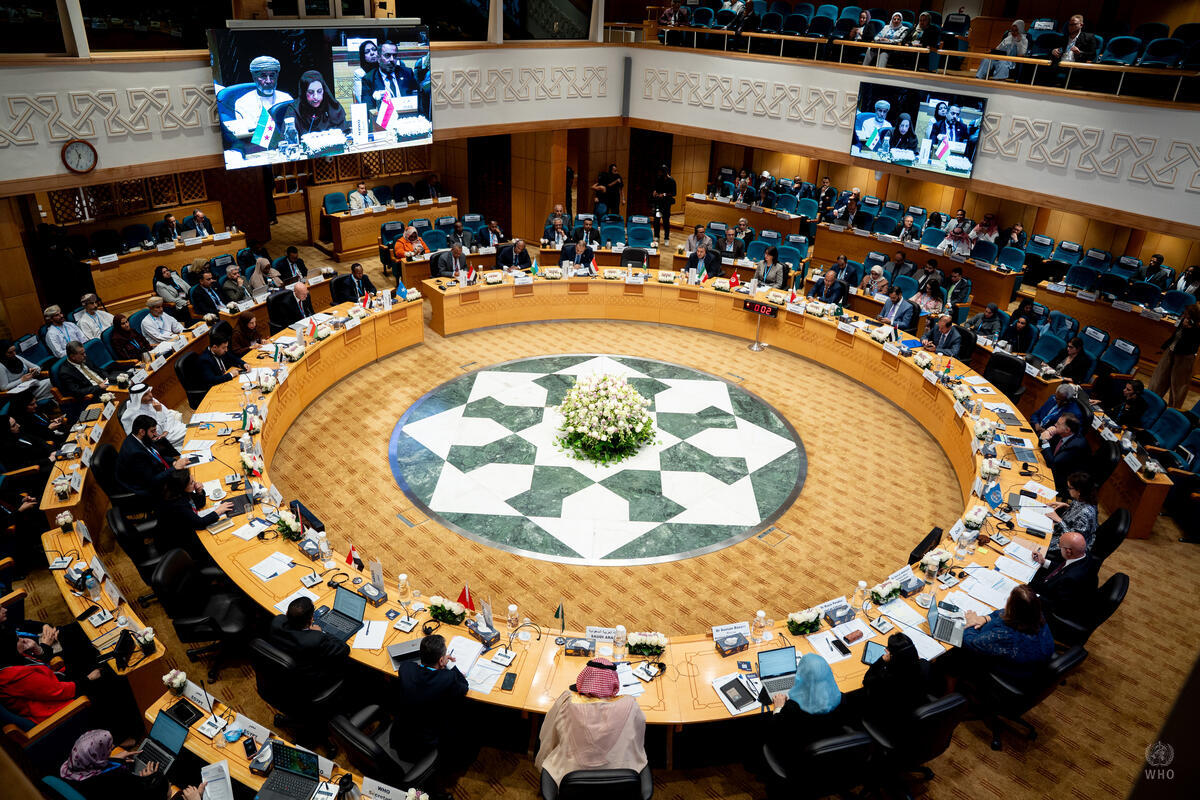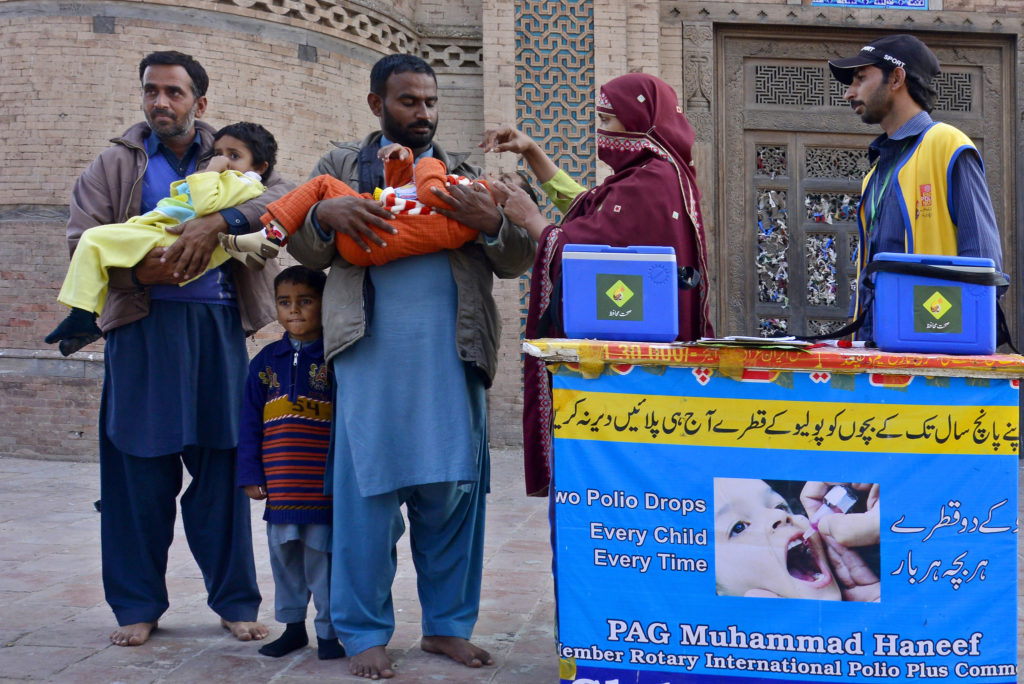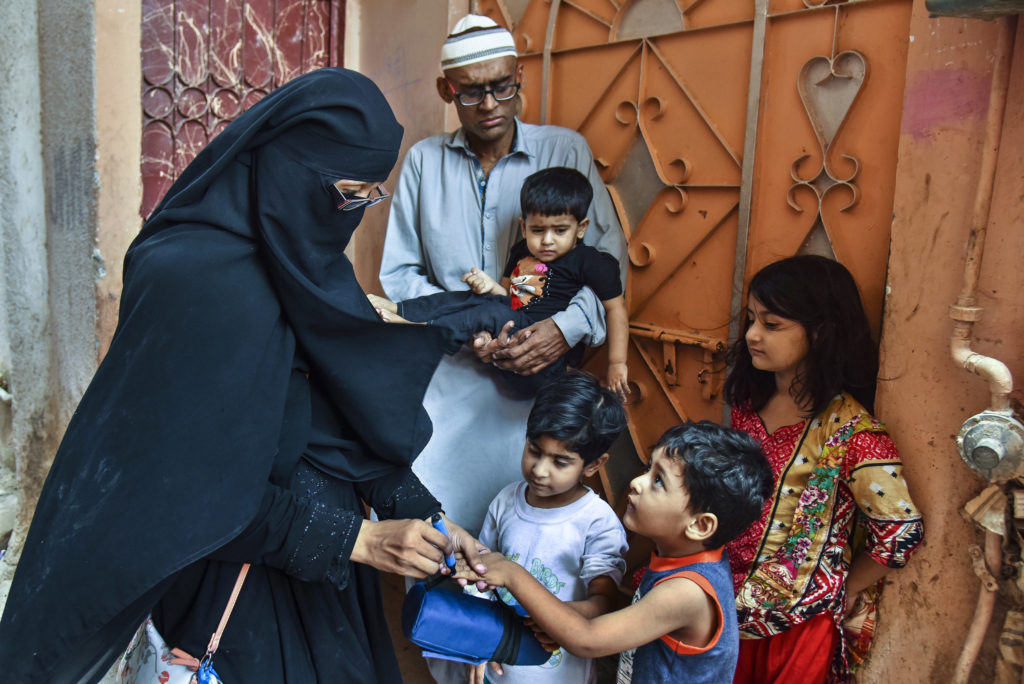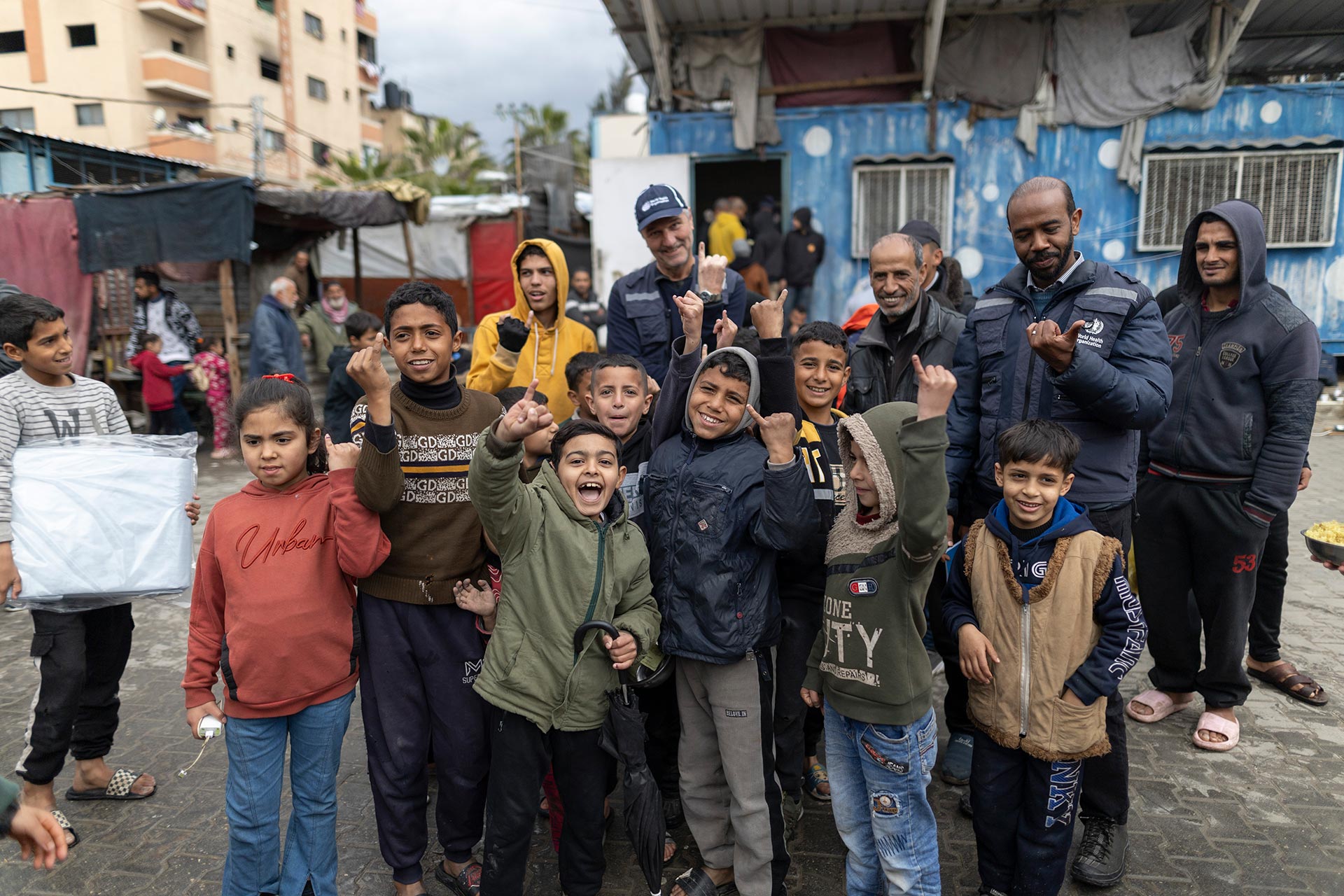
16 October 2025, Cairo, Egypt – Health ministers and senior health officials from across the Eastern Mediterranean Region convened on 15 October 2025 for the14th meeting of the Regional Subcommittee for Polio Eradication and Outbreaks, held during the Seventy-second session of the WHO Regional Committee for the Eastern Mediterranean in Cairo.
The Eastern Mediterranean Region is pivotal to global eradication efforts. Over the past 3 decades, all except 2 Member States have eradicated polio. All Member States have repeatedly stopped outbreaks and strengthened their outbreak preparedness and response, expanded access to vaccination and mobilized domestic resources to protect children from poliovirus. Afghanistan and Pakistan – the last 2 countries with endemic wild poliovirus – continue to intensify efforts to interrupt transmission. However, persistent challenges, including inaccessibility, insecurity – which spurs population movement – and variable campaign quality continue to require sustained attention.
In his technical update, Dr Hamid Jafari, Director of Polio Eradication and Vaccine-Preventable Diseases for the Region, provided an overview of progress and highlighted the strong regional solidarity and political will driving results. He commended Member States for their collaboration and zero tolerance for any poliovirus and emphasized the importance of governments and partners urgently stepping up efforts to ensure every child is reached and transmission stopped once and for all.
Dr Jafari emphasized the challenges of declining international funding and persistent poliovirus transmission in inaccessible areas in the Region at a time when conflicts and humanitarian crises in several countries are becoming increasingly complex. He underscored that the Subcommittee has a critical role in facilitating access, mobilizing political commitment and securing domestic and international financial resources.

Addressing the Subcommittee, H.E. Mansoor bin Ebrahim bin Saad Al Mahmoud, Minister of Health of Qatar and Subcommittee co-Chair, stressed the urgency of leveraging the upcoming low-transmission season for wild poliovirus. “The coming 6 months will be defining – a make-or-break moment in our collective efforts to end polio for good,” he said.
On behalf of H.E. Ahmed bin Ali Al Sayegh, Minister of Health and Prevention and Subcommittee co-Chair, Dr Hussain Al Rand, Assistant Undersecretary for Public Health and Deputy Minister of Health and Prevention of the United Arab Emirates (UAE), noted the complex public health context facing the Region: “It is in this context that the UAE commends the strategic consolidation of polio and EPI programmes – an approach that will accelerate eradication and strengthen routine immunization for the long term,” he said.
Regional support extends from high-level advocacy to sustained financial investments, both essential to ending polio in this critical geography and to strengthening health systems. Earlier this year, the Kingdom of Saudi Arabia joined the Global Polio Eradication Initiative (GPEI) as a key donor, committing US$ 500 million to global eradication efforts. This contribution comes at a vital time, as the programme rolls out a new streamlined action plan to end polio transmission amid wider funding shortfalls.
“The Kingdom of Saudi Arabia commends the implementation of the Polio Legacy Challenge initiative in Afghanistan, to which it is proud to serve as a co-sponsor. The initiative is contributing to strengthening routine immunization services and enhancing the quality of polio vaccination campaigns. The Kingdom appreciates these concerted efforts that advance our shared goal of a polio-free world,” said Mr Abdullah Alquaizani, representative of Saudi Arabia.
Member States reaffirmed their commitment to achieving a polio-free Region, outlining steps to enhance national preparedness and accountability, strengthen outbreak response and cross-border coordination and sustain high-quality campaigns that reach all children. They also called for sustaining international funding and mobilizing domestic funding to ensure that eradication efforts are not impacted by global funding cuts.

Speaking on behalf of GPEI partners, Dr Chris Elias, Chair of the Polio Oversight Board, emphasized that the coming 6 months are critical to sustaining global support and building on current epidemiological opportunities to end polio. He acknowledged the increasingly complex operating context but underscored that the goal remains within reach. Dr Elias commended health workers for their dedication in challenging environments and thanked donors – including Saudi Arabia, Qatar and the United Arab Emirates – for their continued leadership and partnership, urging everyone to stay the course.
Closing the meeting, Dr Hanan Balkhy, WHO Regional Director for the Eastern Mediterranean, commended Member States and donors, including Rotarians, for their incredible efforts. She assured Member States that polio eradication is one of WHO’s topmost priorities and called on all countries to step up diplomatic efforts to end polio in the Region.
The Subcommittee meeting followed United to End Polio, a high-level gathering held on 14 October that brought together governments, partners and diplomatic missions to reflect on regional progress and future priorities. On 16 October, a dedicated session engaged Executive Sponsors of the Polio Legacy Challenge, the results-based financing initiative to support polio eradication and strengthen health systems in Afghanistan.
The Subcommittee will reconvene in early 2026 to review progress towards a polio-free future for its 15th meeting. During the next meeting, the Secretariat will propose actions to address the spirit of the International Monitoring Board’s recommendations to Subcommittee members.



